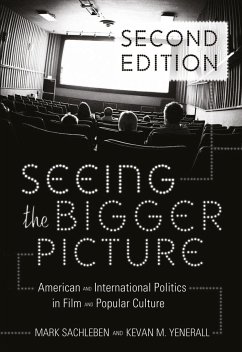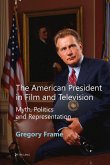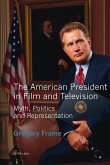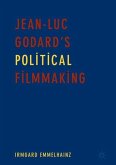Now in its second edition, Seeing the Bigger Picture examines the ways movies and popular culture can foster a deeper awareness of the political dilemmas and debates shaping our world.
Reviewing commercial films and documentaries, the text illustrates the myriad ways that film and popular culture shape our understanding of capitalism and democracy, war and terrorism, civil rights and social justice, campaigns and elections and the presidency.
This updated edition includes new chapters on media, human rights and the environment. In the aftermath of the American invasion of Iraq, the book discusses the broad new spectrum of films about war; it also looks at capitalism and financial markets in popular culture in light of the financial crisis of 2008.
Examining a range of vital issues that dot the political landscape, this is an excellent comprehensive text for students of film and politics, and a creative resource for courses in American government, international relations, popular culture and media studies. This edition is accompanied by a website with links to additional material and film clips that will help facilitate the study of film and politics.
Reviewing commercial films and documentaries, the text illustrates the myriad ways that film and popular culture shape our understanding of capitalism and democracy, war and terrorism, civil rights and social justice, campaigns and elections and the presidency.
This updated edition includes new chapters on media, human rights and the environment. In the aftermath of the American invasion of Iraq, the book discusses the broad new spectrum of films about war; it also looks at capitalism and financial markets in popular culture in light of the financial crisis of 2008.
Examining a range of vital issues that dot the political landscape, this is an excellent comprehensive text for students of film and politics, and a creative resource for courses in American government, international relations, popular culture and media studies. This edition is accompanied by a website with links to additional material and film clips that will help facilitate the study of film and politics.
«In every chapter of this update to their superb first edition, Sachelben and Yenerall demonstrate the astounding scope of their mastery over film history, pop culture and politics. Whether using Birth of a Nation and The Kids Are All Right to discuss civil rights, or Bugs Bunny and Alexander Nevsky to analyze war, the authors weave political science with careful film interpretation and history. Scholars, undergrads and film buffs can prepare for a 'thrill ride' of challenge, enlightenment and intellectual amusement. Break out your popcorn and Milk Duds!» (Scott L. McLean, Professor of Political Science, Quinnipiac University)
«Not just a pop culture flight of fancy - these authors combine insightful film/television criticism and rigorous engagement with political theory. They adroitly demonstrate how popular screens reflect and frame how we understand and experience pivotal political issues - civil rights, labor controversy, and U.S.-style political campaigning, to name a few.» (Charlton D. McIlwain, Associate Professor of Media, Culture & Communication, New York University)
«Serious scholarly attention to popular culture arrived far too late in the social sciences, and Sachleben and Yenerall are helping to fill the gap. They put forth sophisticated yet accessible analysis of a wide array of film and television programming in a way that piques interest and encourages a persistent and critical 'reading' of these important elements of our political socialization.» (Stephen Maynard Caliendo, Professor of Political Science, North Central College)
«Not just a pop culture flight of fancy - these authors combine insightful film/television criticism and rigorous engagement with political theory. They adroitly demonstrate how popular screens reflect and frame how we understand and experience pivotal political issues - civil rights, labor controversy, and U.S.-style political campaigning, to name a few.» (Charlton D. McIlwain, Associate Professor of Media, Culture & Communication, New York University)
«Serious scholarly attention to popular culture arrived far too late in the social sciences, and Sachleben and Yenerall are helping to fill the gap. They put forth sophisticated yet accessible analysis of a wide array of film and television programming in a way that piques interest and encourages a persistent and critical 'reading' of these important elements of our political socialization.» (Stephen Maynard Caliendo, Professor of Political Science, North Central College)









